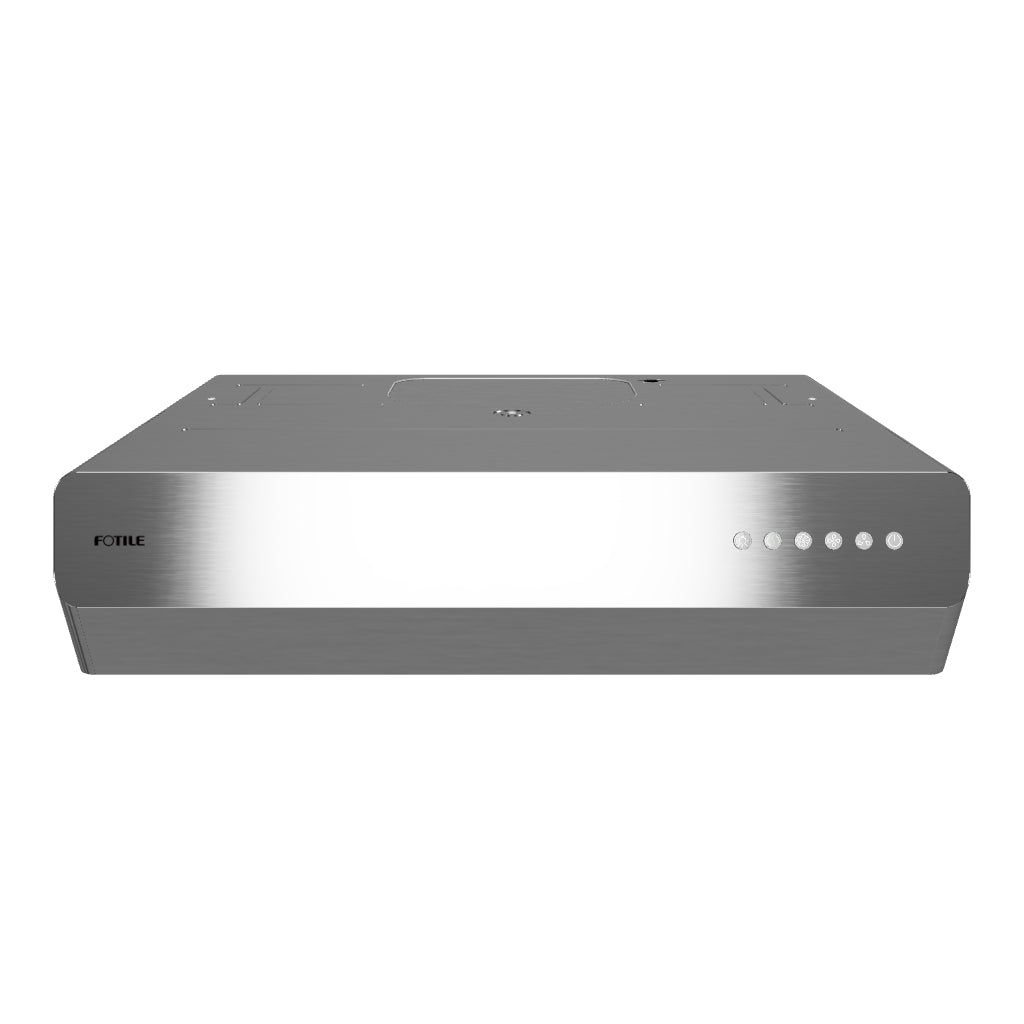How Does a Ductless Range Hood Work? Pros, Cons & Best Uses
Last Updated: 7/212025
Autor: James Zhao, Especialista Técnico Superior y Alex Park, Especialista de Producto
When installing ductwork isn’t possible for your kitchen, you’re not out of options to eliminate greasy air, lingering smells, and smoke. If you’re working with limited space or planning a kitchen update, you’ve probably wondered, “How does a ductless range hood work?” and whether it can keep up with your cooking habits.
Ductless range hoods offer flexibility and easy installation while keeping your kitchen air clean. In this guide, we’ll explain how they function, when they make sense, and what tradeoffs to consider.
FOTILE’s whisper-quiet ductless range hoods combine high-performance filtration with sleek, modern designs, so your kitchen looks as clean as it feels. Browse our full selection to enjoy fresh air, powerful airflow, and easy installation—no ductwork required.
Understanding Ductless Range Hoods: What You Should Know
A ductless range hood, also known as a recirculating range hood, purifies air instead of venting it outside. It draws in smoke, airborne grease, steam, and cooking odors through a fan system.
The air passes through built-in filters, typically a combination of grease and charcoal filters, before being recirculated back into your kitchen.
Here’s how it works:
- Grease filter traps airborne oil and food particles
- Charcoal filter absorbs odors and smoke
- Clean air is released back into the room, no external ductwork required
This self-contained design makes ductless hoods ideal for spaces where installing vents isn’t practical.
Ducted vs. Ductless Range Hoods: How Do They Compare?
Trying to choose between a ducted and ductless range hood? Here’s a side-by-side breakdown to help you decide based on your cooking habits and kitchen layout:
| Característica | Campana extractora | Campana extractora sin conductos |
|---|---|---|
| Rendimiento | Strong ventilation; expels air outside, removing heat, smoke, and grease | Uses filters to clean and recirculate air; effective for light to moderate cooking |
| Cost & Maintenance | Higher upfront cost; minimal long-term maintenance | Lower upfront cost; requires regular filter cleaning and replacement |
| Kitchen Aesthetics & Layout | Bulky ductwork can limit design; may need soffits or cabinetry modification | Compact and self-contained; great for open-concept kitchens or tight spaces |
| Installation Complexity | Requires professional installation and ductwork | Easy to install; no remodeling or vent routing needed |
Pros of Ductless Range Hoods for Your Modern Kitchen
Ductless range hoods offer convenience, flexibility, and style. Here’s why they work so well in many modern kitchens:
Easy to Install
No need to tear into walls or install ducting systems. Most ductless models are easy to install using basic tools, perfect for quick upgrades or kitchen remodels on a budget.
Flexible Placement Options
Whether you're working with an apartment, condo, or island cooktop, ductless hoods adapt to your space. They can be mounted under cabinets, along walls, or even built into custom kitchen ranges—no exterior vent required.
Keep Your Existing Kitchen Design
With no need to reroute airflow or alter cabinetry, ductless systems preserve your current kitchen layout. They blend into your space without disrupting your design vision.
Cons of Ductless Range Hoods: What To Consider
While ductless range hoods offer many benefits, it’s important to weigh their limitations based on how and what you cook:
Less Effective for High-Heat Cooking
If you regularly grill indoors, stir-fry, or cook spicy or aromatic meals, a ductless hood may struggle to eliminate heavy smoke and strong smells as effectively as a ducted system. Recirculated air doesn’t remove heat or moisture from the room.
Frequent Cleaning & Maintenance
Ductless systems rely heavily on clean, effective filters. Grease filters should be cleaned monthly, and charcoal filters typically need replacing every 3 to 6 months, depending on usage. Skipping maintenance can impact performance and lead to stale kitchen air.
Do You Need Filters for A Ductless Range Hood?
Ductless hoods rely on a two-stage filtration system to trap grease and neutralize odors before recirculating air back into your kitchen:
Grease Filters
Grease filters are typically made of aluminum mesh or baffle-style stainless steel, and are designed to trap oil and food particles. Clean them regularly with warm, soapy water or in the dishwasher (if possible) to maintain the best performance.
Charcoal Filters
Charcoal filters absorb odors and volatile organic compounds (VOCs) that escape the grease filter. Unlike grease filters, charcoal filters aren’t washable and must be replaced every 3–6 months, depending on how frequently you cook.
Is A Ductless Range Hood Right for You?
A ductless range hood is a practical choice for many kitchens, particularly when flexibility and ease of installation are top priorities. This type of hood might be the right fit for your home if:
- You don’t have access to exterior ductwork
- You’re remodeling and want to avoid major construction
- You live in an apartment, condo, or rental property
- You have an island cooktop or a layout that doesn’t suit a bulky hood
- You cook light to moderate meals and don’t generate heavy smoke
- You prefer a streamlined look without visible ventilation ducts
Keep Your Kitchen Air Pristine with A FOTILE Range Hood
FOTILE ductless range hoods are engineered for performance and peace of mind. Whether you’re simmering, sautéing, or searing, our innovative filtration technology ensures a fresh, odor-free cooking environment without the need for bulky ducts.
Explore our full collection of range hoods and discover how FOTILE makes ductless ventilation effortless, stylish, and efficient.
- Al seleccionar una opción, se actualiza toda la página.






